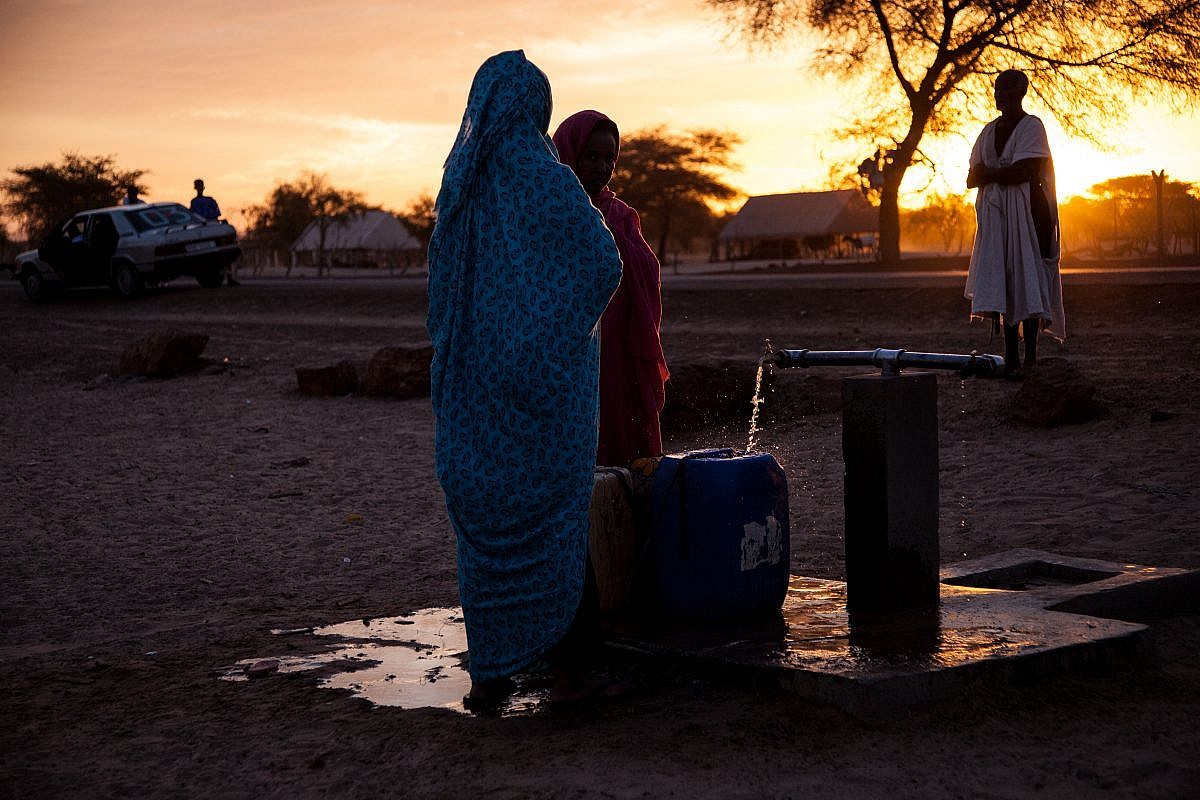Strengthening access to drinking water supply and sanitation in Mauritania
 The geographical and climatic characteristics of Mauritania make water accessibility a major and permanent historical challenge. Moreover, the effects of climate change have already begun to be felt on Mauritanian territory. Rising temperatures, droughts and increased heavy rains exacerbate the continuing trend towards the degradation of agricultural, forest and pastoral ecosystems. In this context, permanent access to drinking water is more important than ever.
The geographical and climatic characteristics of Mauritania make water accessibility a major and permanent historical challenge. Moreover, the effects of climate change have already begun to be felt on Mauritanian territory. Rising temperatures, droughts and increased heavy rains exacerbate the continuing trend towards the degradation of agricultural, forest and pastoral ecosystems. In this context, permanent access to drinking water is more important than ever.
Within the framework of the Project “Access to Drinking Water and Sanitation in the 2 Hodhs regions” (G5-2H), emergency rehabilitation work on drinking water access systems has been underway since June 2020. These activities are taking place in 14 localities in the regions of Hodh El Chargui and Hodh El Gharbi in Mauritania. By September 2020, more than 10,000 people will have secure access to drinking water thanks to the renovation of pipes, pumping systems and the construction of water towers. This rapid response is part of France’s commitments in response to the G5 Sahel Emergency Development Program (PDU) with €12 million in financing from Agence Française de Développement (AFD).
The wilayas of Hodh El Chargui and Hodh El Gharbi are among the most rural and poorest areas of Mauritania. They are particularly vulnerable regions located in a landlocked area that is difficult to access. They are adversely impacted by the weakness of basic services, which are barely sufficient to cover the needs of their populations of around 800,000 people and by a low level of development. As they share a border with Mali, the ripple effect of the 2012 conflict has been felt in these wilayas: the presence of Malian refugees, particularly in Hodh el Chargui where the M’bera camp accommodating more than 60,000 refugees is located, puts additional pressure on the water and sanitation sector. In addition, the insecurity resulting from the conflict is disrupting the local economy that depends heavily on transhumance, which in the Sahel plays an essential role in helping herds adapt to climatic variations.
Through improved access to drinking water supply and sanitation, AFD’s project contributes directly to poverty reduction and reduces inequalities in terms of populations’ access to basic services in the two Hodhs region. It shall reduce vulnerability to crises in the border regions with Mali by tackling the chronic food stress situation faced by their population.
For more information, please click here.

